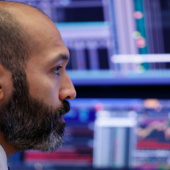Republican Senator Cynthia Lummis of Wyoming is proposing a plan to sell part of the Federal Reserve’s gold holdings to fund the purchase of one million Bitcoin for a national strategic reserve.
Cynthia Lummis, an ally of President-elect Donald Trump, introduced this concept as a way to increase federal Bitcoin holdings without adding to the national debt. This move comes amid Bitcoin’s recent price rally to an all-time high of $93,500 following Trump’s election win.
Cynthia Lummis Proposes Fed Gold Sale To Buy 1M Bitcoin
According to a Bloomberg report, Senator Lummis plans to introduce legislation to sell a portion of the Federal Reserve’s gold and use the proceeds to buy Bitcoin. Her bill, known as the BITCOIN Act (Boosting Innovation, Technology, and Competitiveness through Optimized Investment Nationwide), would authorize the acquisition of up to one million Bitcoin.
Cynthia Lummis estimates this would cost around $90 billion based on current prices, but the sum could rise if the market anticipates the government’s involvement. This move comes despite recent criticism by BTC critic Peter Schiff who has noted the reserve would be a bad idea for the US.
Despite that, Lummis believes that using existing gold reserves would allow the government to build a Bitcoin stockpile without increasing the national deficit.
“We already have the financial assets in the form of gold certificates to convert to Bitcoin,” Lummis said in an interview.
She noted that since the Federal Reserve’s gold holdings are valued at a statutory price far below their market value, there is sufficient gold to cover the purchase without risking financial stability.
Potential Obstacles and Skepticism Over Bitcoin’s Stability
Despite support from some pro-crypto lawmakers, Lummis’ proposal is expected to face challenges. The bill currently lacks co-sponsors, and there is widespread skepticism about Bitcoin’s volatility. Jennifer J. Schulp, director at the Cato Institute’s Center for Monetary and Financial Alternatives, commented on the risks involved, stating,
“It’s still putting government money on the line, and Bitcoin has not shown itself to be a particularly stable asset.”
Crypto market analysts and some members of Congress also question the long-term viability of holding Bitcoin in a federal reserve. Billionaire Michael Novogratz, head of Galaxy Digital, expressed doubt about the likelihood of a national Bitcoin reserve. However, he suggested that if the U.S. does pursue such a plan, it could lead to a global race, with other nations potentially creating their own reserves.
Rising Support Among Pro-Crypto Lawmakers in Congress
Lummis’ proposal aligns with President-elect Trump’s recent endorsement of a federal Bitcoin reserve. Trump’s initial plan focused on holding Bitcoin assets seized by law enforcement, amounting to around 200,000 tokens. Lummis’ bill would expand this by purchasing an additional one million tokens, which she proposes the government would hold for a minimum of 20 years.
Concurrently, the upcoming Congress may be more receptive to crypto initiatives, with several pro-Bitcoin lawmakers expected to take office. The crypto industry spent around $135 million backing pro-crypto candidates in the 2024 election cycle, leading to what industry supporters hope will be the most crypto-friendly Congress to date.
Lummis’ proposal is not the only initiative seeking to establish a government-backed Bitcoin reserve. In Pennsylvania, Republican Representative Mike Cabell recently introduced a bill to permit the state treasury to invest up to 10% of its funds in Bitcoin.
Disclaimer: The presented content may include the personal opinion of the author and is subject to market condition. Do your market research before investing in cryptocurrencies. The author or the publication does not hold any responsibility for your personal financial loss.

















✓ Share: